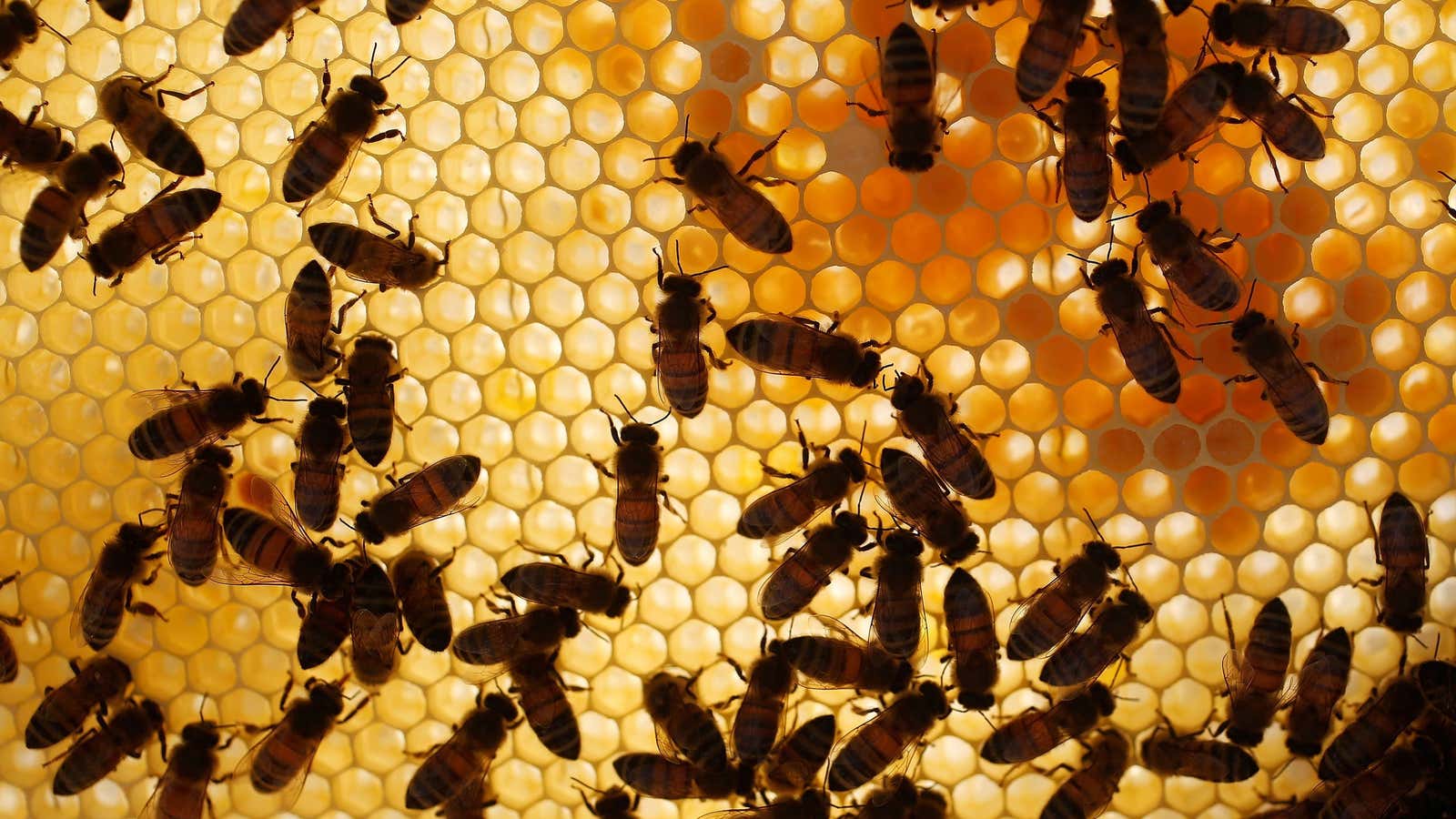New research adds to a growing body of evidence that suggests Monsanto’s ubiquitious and controversial weedkiller, RoundUp, is delivering to bees a sucker-punch to the gut.
The study, published in the Proceedings of the National Academy of Sciences by a team of researchers at the University of Texas, shows that when bees make their daily rounds, landing on plants to collect pollen and nectar, any glyphosate they might ingest is hurting the microbiomes of their guts. Glyphosate is an active ingredient in some of Monsanto’s herbicide products.
This isn’t the first time the ingredient has been shown to have an effect on animal guts. Earlier this year, a 13-week pilot study by the Ramazzini Institute found the Monsanto weedkiller RoundUp, even if administered at levels considered safe for humans, modified the gut bacteria of lab rats. Whether RoundUp exposure poses any long term issues for humans is the subject of much conjecture. Earlier this year, Monsanto made headlines when the Environmental Working Group (EWG) released a study showing glyphosate residues were in a whole range of everyday food items, including oatmeal, Cheerios, and granola. But the science behind that report was shaky, and it was the subject of criticism, in part because EWG set its own definition for what an acceptable level of glyphosate in food, rather than follow prior, scientifically backed levels.
If Monsanto’s weedkiller is hurting bees in a significant way, it would offer at least some explanation as to why the bee population has fallen drastically in the last several decades. In 2014, the US government reported 2.5 million managed bee colonies. That represented a significant drop from about 60 years prior, when there were about 6 million colonies in America. And those numbers have economic and food repercussions. Because of their role in pollinating crops, honey bees enable the production of about 90 commercial crops in North America alone—contributing more than $15 billion to the US economy each year.
The University of Texas study is just another of its kind to make the connection between RoundUp weedkiller and bee health. Research in July out of China showed bee larvae were negatively impacted by exposure to glyphosate. Scientists observed the larvae growling at a slower-than-usual rate or dying more often when exposed. And a 2015 study found bees had reduced cognitive abilities when they were exposed to herbicides found in crops.
In response to the new study, Monsanto told The Guardian that it rejected the findings, saying no large-scale study has “found any link between glyphosate and the decline of the honeybee population.”
